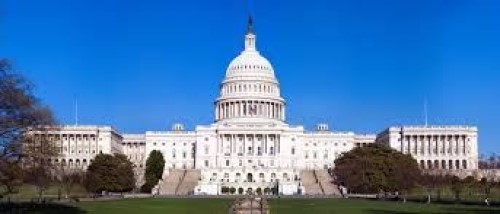As mentioned in the latest Your Congress in Action earlier this week, the new COVID relief package was signed into law at the very end of 2020. We wanted to break down the provisions most important to CRM in greater detail. Read on for more information on how the relief package benefits your firm!
- If you did not receive Paycheck Protection Program funds in the spring, now is your chance! The package included $325 billion in new funding for Paycheck Protection Program loans. However, even if you received a PPP loan last spring, you may be eligible to receive a “second draw” PPP loan if your firm has been particularly hit hard during the pandemic.To receive a second draw PPP loan, businesses must:
-
- Employ not more than 300 employees (as opposed to 500 employees in the first round of PPP). Unless subject to an exemption, e.g., hospitality (NAICS code 72), the SBA affiliation rules apply in determining the number of employees;
- Have used or will use the full amount of their first PPP loan; and
- Demonstrate at least a 25% reduction in gross receipts in the first, second, or third quarter of 2020 relative to the same quarter in 2019.
Second draw loans can receive a loan amount of up to 2.5 times their average monthly payroll costs in the one year prior to the loan or the calendar year, although no loan can be greater than $2 million. Eligible expenses for forgiveness for a second draw loan equal to the sum of their payroll costs, as well as covered mortgage, rent, and utility payments, covered operations expenditures, covered property damage costs, covered supplier costs, and covered worker protection expenditures incurred during the covered period. To receive full forgiveness, borrowers are still required to use at least 60% of the loan proceeds on payroll costs.
The National Law Review has a comprehensive summary of the new PPP changes and second draw loans here.
- When the PPP was first created, the IRS released guidance stating that expenses covered by a loan in the program were not deductible. While this was meant to prevent “double-dipping,” in practicality this created a significant tax increase (as much as 37%). Many small businesses would be forced to lay off employees or close their doors as a result – exactly the opposite of what the PPP was trying to achieve. ACRA and the SAA sent a letter to Congress in December addressing this issue.The latest relief package confirmed the intent of the program by blocking this inadvertent tax increase, and today (January 6) the IRS issued new guidance stating that “no deduction shall be denied, no tax attribute shall be reduced, and no basis increase shall be denied.” This a huge win and relief for CRM firms across the country.
- The new stimulus bill also enhances a previously overlooked clause in the original CARES Act: now up to eight months of principal and interest payments on Section 7(a) and 504 Microloans can be forgiven. This portion of the bill was championed by Senator Chris Coons (D-DE) and is aimed at allowing small businesses to not just recover from the pandemic, but also hire and grow.Businesses that have existing types of these loans get three months of forgiveness plus an additional five months for hard-hit industries, capped at $9,000 per month. CRM firms would be more likely to receive three months as this industry has been classified as essential in most states.
Businesses that receive new Section 7(a) or 504 Microloans by September 20, 2021 will have their first six months of principal and interest forgiven (also up to $9.000 per month). PPP recipients are eligible to apply, and you even do not need to prove that your business has been impacted by COVID.
A great summary of this program and its expected impact is available in the Philadelphia Inquirer.
- Lastly, unfortunately the bill did not include funding for state and local governments. ACRA has been advocating for this in its (virtual) meetings on Capitol Hill in recent months in the hope that SHPOs and THPOs would receive part of such funding. With reduced tax revenue in 2020, we are anticipating cuts to state budgets across the country, and we want to ensure that critical projects are able to continue and SHPOs are able to operate at full capacity. ACRA will continue to work on this issue as the new Congress gets underway.
ACRA will continue to bring you pandemic-related news and updates important to CRM firms. Stay tuned to the ACRAsphere for as more information unfolds!

